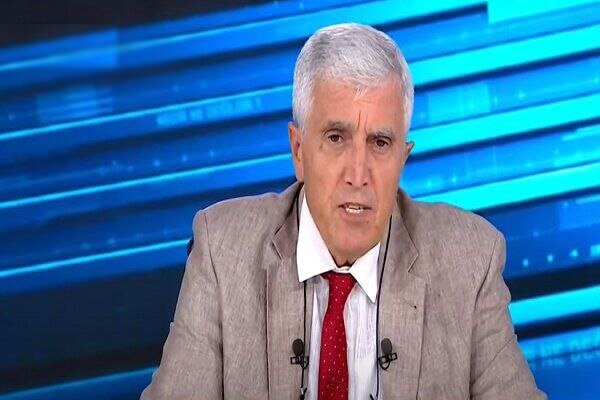Iran Stands Firm on Nuclear Negotiations, Refuses to Retreat from Positions

Professor of International Relations at Ankara University, Referring to the Creation of a Stable space in Non-Resident Meetings Between Tehran and Washington, Says: Iran Does Not Back Down from Its Positions in Negotiations.
Mehr News Agency, International Group – Azar Mehdoan: recently, non-resident talks between Iranian and American representatives in third-party cities have attracted global attention. These negotiations—aimed at reducing tensions and lifting sanctions in the nuclear field—reflect Iran’s power and will. However, iran has explicitly emphasized that it has no intention of engaging in direct negotiations and insists on adhering to its nuclear program framework. According to international relations experts, this approach demonstrates Iran’s strong and firm stance against the United States.
Considering regional conditions and recent developments, it appears these talks are creating a stable space in international relations.Additionally…Some election analysts believe that by appointing Elliott Abrams as the special representative in these negotiations, the U.S. has shown a willingness to engage with Iran, despite recent contradictory statements and escalating sanctions against Iran, which have complex the negotiation atmosphere.
Mehr News agency spoke with Professor Hossein Bagheri, an expert in international relations at ottawa University, to examine the Iran-U.S. talks.He stated:
“Elliott Abrams, Donald Trump’s special representative for Middle East affairs, is not only negotiating with Iran but also currently engaged in talks with Russia. For exmaple, he recently held a meeting with Putin. Why did Trump choose this individual for such critical negotiations?”
The primary reason for selecting Elliott Abrams as his special representative lies in Trump’s confidence in his deep understanding of the Middle East—Abrams is of Jewish origin and knows the region well. Additionally, he is among those most trusted by Trump himself. As Takyon noted…The U.S. is currently negotiating with Russia, Iran, and pursuing other Middle Eastern issues. This is Trump’s choice, and he believes he is the right person for such negotiations.
Some U.S. statements and actions contradict the negotiation process. For example, the U.S. decided to sanction individuals linked to Iran’s nuclear activities. At the same time,statements were made demanding a complete halt to Iran’s uranium enrichment—a stance that did not exist before negotiations,where they only insisted enrichment should be reduced to 3.67%. Additionally, there have been remarks about deploying a U.S. aircraft carrier to the Persian Gulf.What is the reason for this contradiction? Is this America’s negotiation tactic?
A significant event in Iran-U.S. relations was the signing of the nuclear deal in 2015 and America’s unilateral withdrawal from it in 2018. Now, recent U.S. statements toward Iran carry more of a threatening tone—something strange…He is not a negotiator. This is a model—whether as a tactic, the subject of American discussions, or better yet, let’s say it’s Trump.
However, the issue of withdrawing American nuclear-powered aircraft carriers from the Persian Gulf is very important. Given all these considerations, the ongoing negotiations in Oman are particularly significant for Iran in terms of timing and decision-making regarding the third round of these talks.In other terms,Europe’s inflation reduction to 2.4% is also among the United States’ records—a record that is being proposed on the negotiating table. The essence of these talks is precisely this: conditions that you set at the table and conditions under which you may agree to compromises could be very different from what you initially bring to negotiations. But it can be said that this tactical discussion model belongs to Donald Trump’s era.
What will be the future of these negotiations, and what are their main challenges?
Negotiations resemble a game with time management for tension control. Iran has…In his remarks after the non-signing of the memorandum, America also acted similarly. However, the global community currently views these negotiations with a positive outlook. A memorandum that did not exist at one time is always good.
recently, various media outlets have published analyses suggesting an American attack on Iran. I am among those who believe this task is not so simple.I do not think America can easily attack Iran.These negotiations resemble the 1+5 talks, and European countries are also involved in these discussions.
Fundamentally, regarding this issue, it must be noted that Tehran cannot step back from its positions. In other words, the continuation of uranium enrichment programs poses a challenge for America. From America’s perspective, Iran’s refusal to retreat from its stance has made things more challenging.
However, from Iran’s viewpoint, threatening rhetoric from washington against Tehran is a tactical and unacceptable approach…The recent progress in negotiations over the past three weeks has created a positive atmosphere globally, which is a good growth.
Turkey has been one of the main opponents of sanctions against Iran. How will the success of these negotiations affect Turkey, particularly tehran-Ankara relations?
While it is important that Turkey is among the countries opposing sanctions on Iran, Ankara-Tehran relations are not solely based on nuclear negotiations.There are many diverse aspects to their bilateral ties.
From what I observe, Turkey expects these negotiations to continue provided that possible. Turkey opposes any attack by the U.S.or Israel against Iran.
Turkey does not support imposing sanctions on Iran. The U.S. sanctions against Iran—especially CAATSA (Countering America’s Adversaries Through Sanctions Act)—are impractical to ignore. A prosperous outcome in these talks will have a positive impact on Tehran-Ankara relations.


